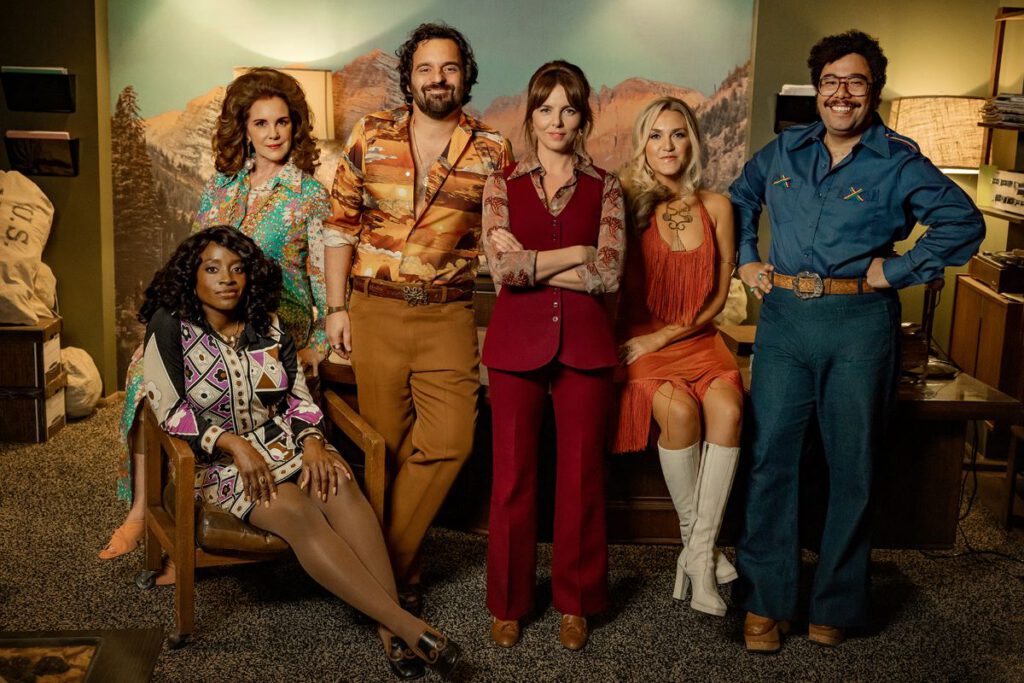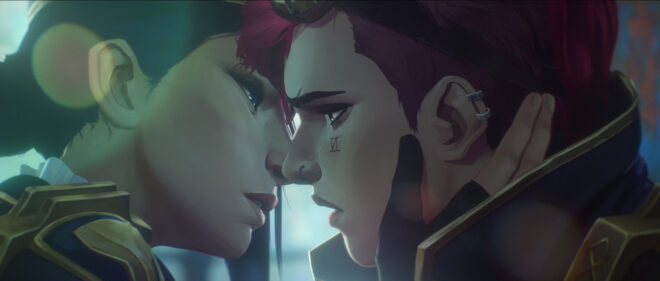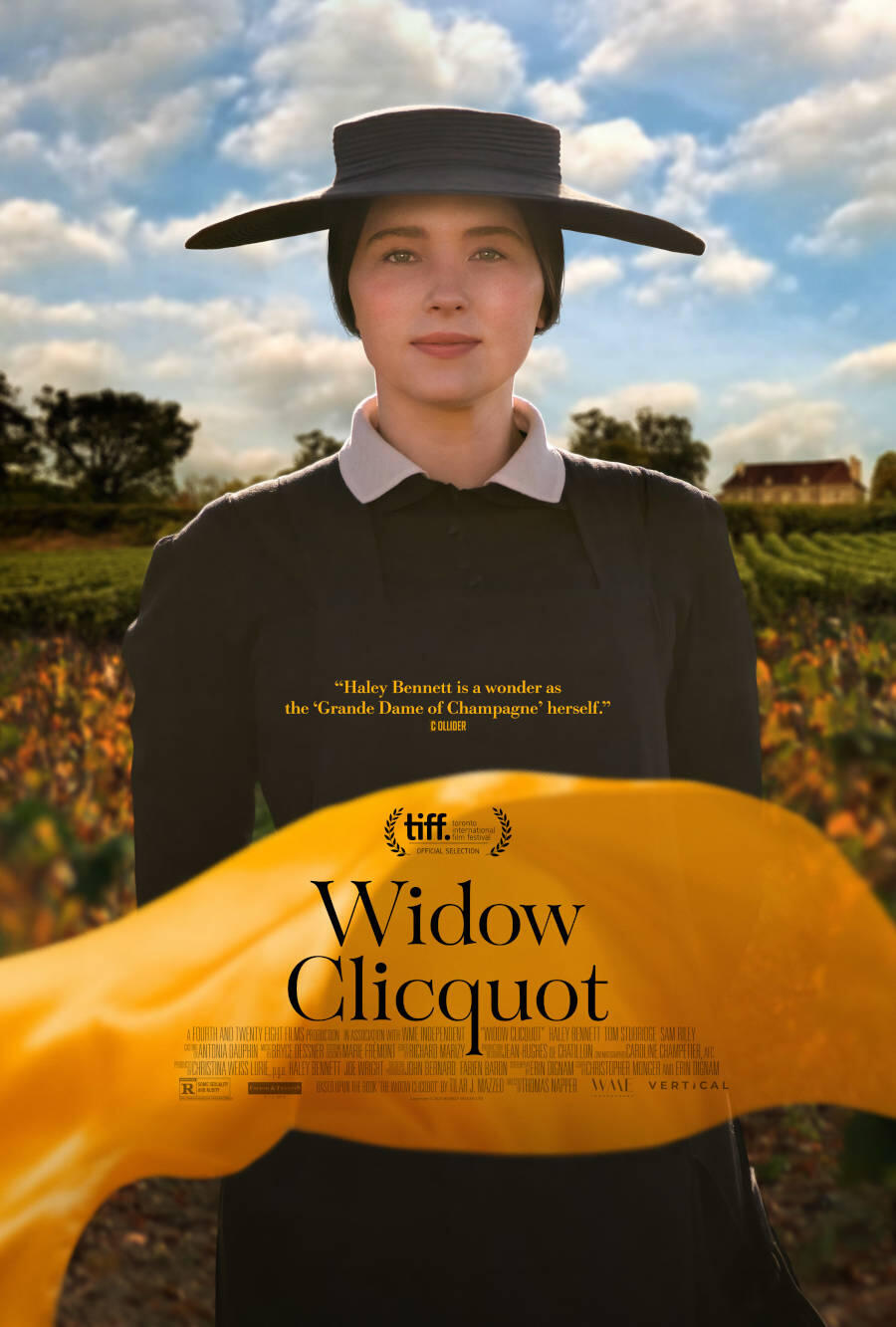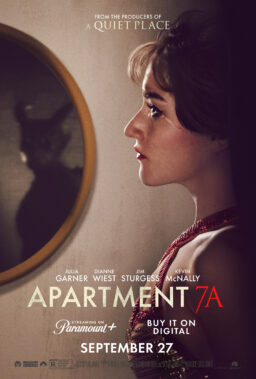When it first premiered on HBO in the spring of 2022, "Minx"—a comedy set in 1970s Los Angeles about the struggles of a young feminist woman fighting to print the intellectual magazine she thinks women deserve—won rave reviews and a renewal. Production was nearly complete on the sophomore season when David Zaslav, the new CEO of Warner Brothers Discovery (and all-around penny-wise, pound-foolish champion), not only revoked the Season Two pickup; he had the series removed from HBO's catalog altogether. Fortunately, Starz stepped in and saved the show. Even with the change of address, "Minx" remains the fun, thought-provoking laugh riot audiences came to love last year.
Season Two is all about flipping the story on its head. What happens to art and artists when you find fame and success? Minx founder Joyce Prigger (Ophelia Lovibond) used to battle with pornography publisher Doug Renetti (Jake Johnson) over control of her smash-hit magazine. He capitulated in the final scenes of Season One, asking her to take him along for the ride; now, Joyce finds herself feted by the likes of Hearst, Conde Nast, and Meredith while Doug watches from the sidelines, wringing his hands and desperate to find a way to prove his usefulness. Tina (Idara Victor), his girlfriend and the magazine's managing director, no longer wishes to suppress her ambition and is eager to climb the corporate ladder. Joyce's sister Shelly (Lennon Parham), after sleeping with Minx employee Bambi (Jessica Lowe), is struggling to understand her newly changing sexuality while also maintaining equanimity at home with dentist husband Lenny (Rich Sommer). For her part, Bambi gracefully allows Shelly to back away but feels adrift, wondering whether she offers any value to her workplace or colleagues. Richie (Oscar Montoya), Minx's art director, found his voice by the end of Season One, reveling in his desire and ability to speak up for himself and his vision. But when Constance Papadopoulos (Elizabeth Perkins), a vulture capitalist in sheep's clothing, expresses interest in funding the magazine, Joyce is starry-eyed to receive help from "the first woman to have a seat on the New York Stock Exchange" but neglects to notice that Constance's vision of a queer-exclusionary feminist women's magazine will affect Richie and readers like him.

One of the most striking things about Season One was its progressivism. "Minx" was the first show of its caliber and scale to discuss workers' rights, sex-positivity, and inclusion regularly. That's no less prevalent now; this season, the writers have placed greater emphasis on intersectionality. Richie pointedly reminds Joyce that she probably hears "no" less than he, a queer Latino man, does. Bambi resents that because she is a former object of fantasy—i.e., an ex-print pornography model—everyone has projected onto her their fantasies of a helpful, easygoing colleague. She longs to feel a familial bond with her coworkers, but Richie wisely advises she separate work and life, that while it's fine to be friendly with your workmates, it's best not to think of them as family. Caught up in her newfound fame, Joyce has ignored the efforts Shelly has made in the past and present to help her younger sister.
This meld of class consciousness and inclusiveness allows the actors in these roles to shine. If Season Two belongs to anyone, it's to everyone who isn't Joyce or Doug. Yes, Lovibond and Johnson are doing terrific work here. The latter especially brings a pitiable and wholly understandable anguish to the role, imbuing Doug with a relentless need to be understood, loved, and prized. But the world belongs less and less to him. Instead, it belongs to people like Tina. Like much of the series cast, Idara Victor is a "Mad Men" alum, having played Dawn Chambers' best friend during Season Six. Her performance on "Minx" is beautifully multidimensional. There is careful thought in how Tina, a Black woman, can safely project power without being shown the door. She draws up her spine straight, refusing to be guilt-tripped into running her family's stationery store, but willing to compromise in corporate spaces so she can have a seat at the table.

The world belongs to people like Richie, refusing to sacrifice art and humanity to capital, strident about his need for an artistic outlet, cognizant that his vision has many uses and must be protected. Montoya does a lovely job with these internal battles, letting emotion and drive hang on Richie's face until he's made his point. Lennon Parham (also a "Mad Men" alum, a pushy realtor from Season Six) is also doing the best work of her career, standing up for herself, her needs, her desires, and her right to be a person unto herself. With almost imperceptible glances, head tilts, and blinks, Parham establishes a bedrock of strength for Shelly. She is vulnerable, but she is discovering who she wants to be. It helps that Parham is aided by the keen comic timing and hopeful eyes of Sommer, who loves his wife but understands she has changed and wants to aid her journey of self-discovery.
This writer has two moderate quibbles with this season. For a character who spoke so forthrightly about human rights and the need to protect art from money-hungry capitalists, it's difficult to believe Joyce wouldn't have seen through Constance's charade. Second, the timing of the back half of the series feels off. There are only eight episodes, and they're 30 minutes each. Perhaps the transfer of "Minx" from HBO to Starz interfered in some way with mapping out various storylines and pacing, but the glitches aren't significant enough to greatly impact the quality of Season Two. Viewers can only hope that Starz will be wiser than HBO when keeping a period piece of this excellence.
Whole season was screened for review. Season Two of "Minx" premieres on July 21st.












